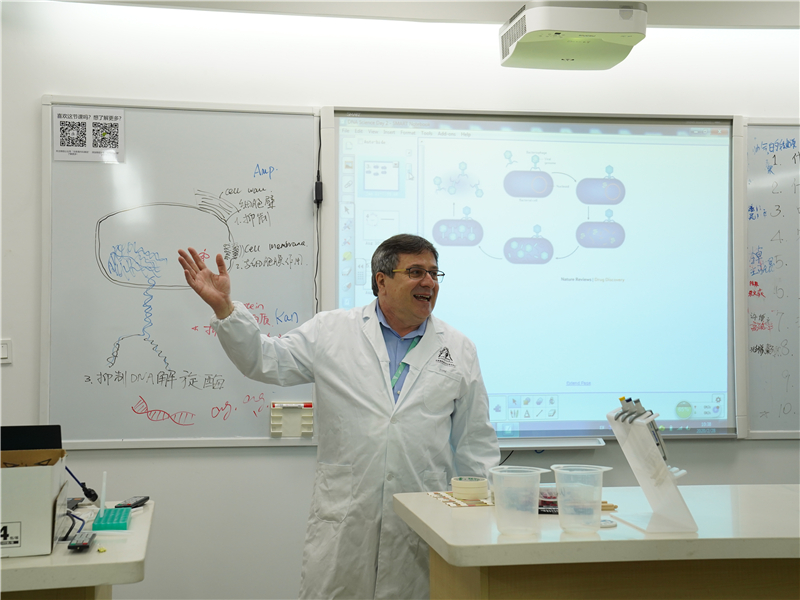 |
|
John Olson is the director of education at Cold Spring Harbor Asia DNA Learning Centerin Suzhou, East China's Jiangsu province. [Photo/chinadaily.com.cn] |
John Olson, director of education at Cold Spring Harbor Asia DNA Learning Center in Suzhou, East China’s Jiangsu province, had done a lot to help people better understand the novel coronavirus (COVID-19).
Olson is from the United States and is now living in Suzhou. Olson said he was very impressed at how quickly everyone worked together to get the epidemic under control, during an interview with China Daily. Here are details of the interview:
Q: Please briefly introduce your study and work experience.
A: I was born and raised in the city of Niagara Falls in New York state in the United States. I earned an undergraduate degree in Biology with a specialization in Recombinant DNA Technology from the State University New York College at Buffalo. I went on to earn a PhD in Microbiology and Immunology from Virginia Commonwealth University. I worked in two postdoctoral positions, one at The Ohio State University and then at the University of California, Los Angeles (UCLA).
Q: Why did you come to China?
A: One of the students I trained in my program was placed into the laboratory of the Chair of the Molecular Pharmacology Department in the UCLA School of Medicine. That student published papers and the Chair was very impressed. When the Chair became the Dean of the School of Life Sciences at Peking University (PKU), she brought me along to set up a similar program.
Q: Why do you work at Cold Spring Harbor DNA Asia Center? What kind of work are you responsible for?
A: The DNA Learning Center (DNALC) is a scientific research and educational institution where students can come and take camps and courses to get hands-on training in techniques that are essential for molecular biology. There are also opportunities to get involved in original research. The innovative educators at DNALC are going out into the area’s middle and high schools to give students hands-on training in experimental sciences and are also bringing teachers into the center for training. I joined this group to help them have a bigger impact on the area’s schools, to reach out to the universities to see if we can help them with their mission, and to provide training for people interested in a career in the biotechnology industry.
Q: What did you do during the outbreak? What's the effect so far?
A: As an educational institution, DNALC has been closed since January 23. Our teachers however have been very busy developing materials for online education. We had been talking about doing this for some time because an online format can have a broad impact, so the current situation turned into an opportunity to put some of our plans into place.
Our team of experts have a diverse background of training, so we were able to put out a lot of accurate information on various topics to help people have a rational understanding of the pandemic.
Q: How do you evaluate the epidemic prevention and control work in Suzhou or China? At present, many foreigners have volunteered to join the epidemic prevention and control work. What is your comment on that?
A: I was very impressed at how quickly everyone worked together to get the epidemic under control. The prevention measures set up in my community early on convinced me that I was safe and that there was no possible way that I would be exposed to the virus. It seemed that everyone understood the seriousness of the situation and everyone supported the actions taking place.
For a scholar focusing on Australia's public diplomacy, working as a recreational manager in China may never be part of his career path. But Bradley McConachie does have lots to say now about his special experience at a resort in the picturesque tropical coastal city of Sanya in South China's Hainan province.

One of the potentially most traumatic things a girl has to go through is finding a new hairdresser.